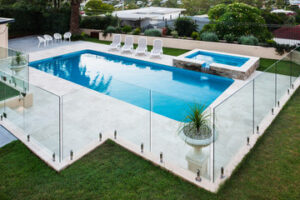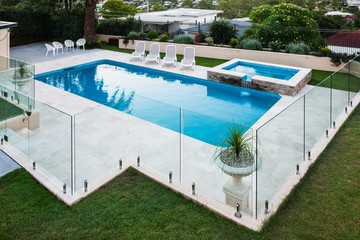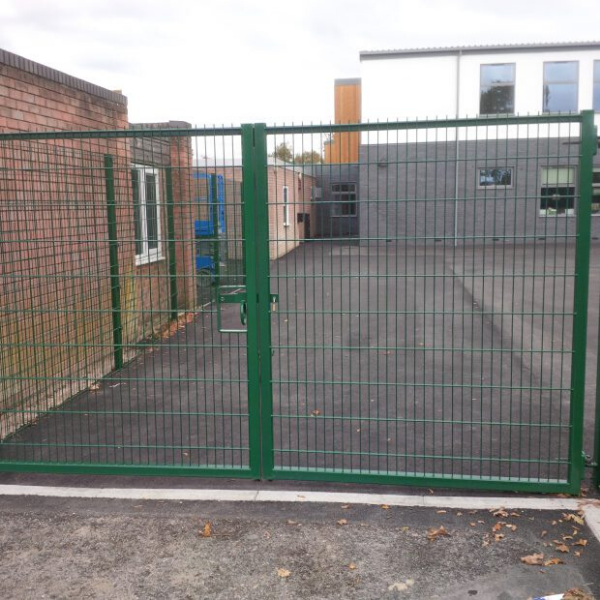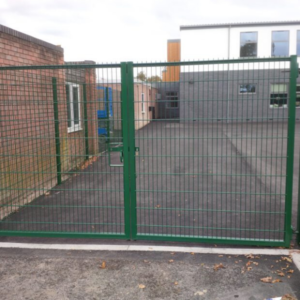Pool Fences NJ are one of the most obvious choices for a pool. Although it does not prevent drowning accidents like proper supervision, it provides an extra layer of safety.

Studies have shown that pool fencing significantly reduces the risk of young children drowning in swimming pools. It is essential that pool owners install a fence around their pools.
A pool is a great addition to any backyard, allowing you to enjoy the outdoors and spend time with your family. However, pools can also pose a safety hazard if not properly secured with fencing and other safety features. Fortunately, there are plenty of options for swimming pool fences to keep your family safe, including wooden fences.
A traditional wood fence offers a classic look for your pool and is easy to install. A simple black metal post fence is one option, but you can also opt for a wooden lattice fence that uses diagonal crisscrossing to create an attractive and safe barrier. This type of fencing is not as tall as some other options, which may be ideal if you want to keep an unobstructed view of your pool.
Another option for a traditional wood fence is to use a picket fence. This style of fencing is more decorative than the black metal fence, with slats that can be customized to match your backyard. You can choose from a wide variety of colors to suit your pool and garden, but it is important to note that picket fences are prone to rot and require extensive upkeep.
Metal fences are also an option, but they can be difficult to maintain and do not offer as much privacy as wooden or picket fences. Generally, wrought iron, aluminum tube, and tubular steel fences are used for metal pool fences. They are durable and affordable, but you will need to be vigilant about upkeep to prevent rust.
If you’re looking for a more modern option, glass pool fences are an excellent choice. These stylish fences are made from safety glass balustrades interspersed with metal posts. They are a great option for homeowners who want to maintain an open view of their pool, but they are more expensive than most other types of swimming pool fences.
If you’re unsure what kind of fence to install, consider hiring a professional for advice. An experienced fence company can help you select the perfect fencing material for your pool while keeping in mind your local and state regulations. They can also assist with installation, ensuring that your new fence is safe and secure. They will also provide a gate that is fitted with self-closing and child-proof locks.
Picket Fences
When it comes to a pool fence, you have plenty of options. It is important to choose a fence that complies with local codes and regulations, however, as this will ensure the safety of all who swim in your backyard pool. Fences should be at least 4 feet tall, and they must have no gaps that are larger than 2 inches. This deters children from crawling under the fence and entering the pool area unsupervised. Gates should also be self-closing and have a latch that is beyond the reach of children.
One of the most common types of pool fences is a mesh one. This type of fence was created specifically for use around swimming pools, so it is one of the safest options on the market. It prevents kids from being able to climb over the fence, and it is not easy for them to open or slip under the fence either.
Another option for a pool fence is a metal one. These are usually made of wrought iron, aluminum tube, or tubular steel, and they offer a sturdy and durable barrier to swimming in your backyard pool. These are typically on the more expensive side, and they do require maintenance to prevent rust, so if you’re not comfortable with this upkeep, it may be better to go with a different type of fence.
If you’re looking for a more natural-looking option, consider a stone fence. This is an excellent choice for those who want a more rustic look in their backyard, and it can be a great addition to any landscaping project that you have planned around the pool. However, it’s important to note that this option is not a good idea for those who want a fence that will provide them with privacy, as curious onlookers will be able to see straight into the swimming pool area.
The most popular types of pool fences are wrought iron, aluminum, and tubular steel, but these aren’t the only options on the market. There are a number of other materials that can be used to create a safety barrier for your backyard swimming pool, including glass and vinyl. These are all easy to maintain, and they can help you create a safe and attractive backyard pool area.
Plants
There are a number of plants that can be used to create a beautiful and unique pool fence. For example, a crawling vine can camouflage your fence as it grows up the sides, while a row of large hydrangeas can add a touch of summer in New England style. The key to selecting plants for a pool fence is finding ones that are suitable for the environment, are low maintenance, and work with the overall look of the garden. The plants and trees should also not produce leaves, seeds, or flowers that can clog the filter or stain the bottom of the pool. The garden should be maintained regularly to prevent weeds from taking over, and the plants should be kept away from the area where chemical treatments are applied.
If you do decide to use plants as a part of your pool fence, it is important to keep in mind that a well-designed and effective fence requires a dynamic gate, isolation fencing, and a secure and self-closing latch. Legislation in many areas outlines strong safety standards that must be met for swimming pools, including the use of a sturdy and aesthetically pleasing fence.
A “living” fence can also be an attractive option, as hedges and ornamental plants like bamboo can act as a natural barrier that will keep the neighbors out of sight while enhancing the greenery in your backyard.
The type of plant you choose depends on the climate in your region, including how much sunlight or shade is available and the soil conditions. It is also important to know how much pruning and trimming the plants will require, as well as their salt tolerance levels. You should also consider any allergies you or others may have to plants.
There are a number of groundcovers that can be used as a part of your pool fence, including yarrow, foxglove, beardtongue, and sage. These can provide a burst of color in the spring and summer while being low-maintenance. They can also be planted in pots and hanging baskets, which can then be positioned around the pool.
Vinyl Fences
Vinyl fencing can be a great way to ensure your pool area is safe while adding to the aesthetics of your home. It comes in a wide variety of colors and styles, and it can be customized to suit your unique needs. Vinyl is also durable and easy to maintain, making it an excellent choice for pool fences.
One drawback to vinyl is that it can be susceptible to damage from impact. Because of this, it is important to choose high-quality vinyl when shopping for your fence. Lower-quality vinyl will be less resistant to impacts and will be more likely to dent or become damaged. In addition, make sure to purchase a fence that is code-compliant and meets local safety regulations.
If you’re looking for a vinyl fence, it’s best to work with a professional. They’ll be able to help you choose the right style and design for your pool and will ensure that the final product complies with all local laws and safety regulations. In addition, a professional will have the tools and equipment to install your fence quickly and efficiently.
There are several different types of vinyl fences that you can choose from, including privacy, picket, and lattice. Privacy fences have solid panels that offer a high level of privacy, while picket fences have spaced vertical slats that allow for some visibility and create a charming look. Lattice fences combine the best of both worlds by offering a mix of privacy and style.
Another benefit of vinyl is that it’s very durable and long-lasting. It’s also resistant to water and sun damage, which is a big advantage over wood and chain-link fences. In addition, it’s flexible and can absorb some of the impact from children’s toys or other objects that could otherwise damage a traditional fence.
One disadvantage of vinyl is that it cannot be stained or painted. This means that once you choose the color and design for your fence, you’ll have to stick with it unless you want to replace it later. However, this is a minor drawback and not a major concern for most people.



